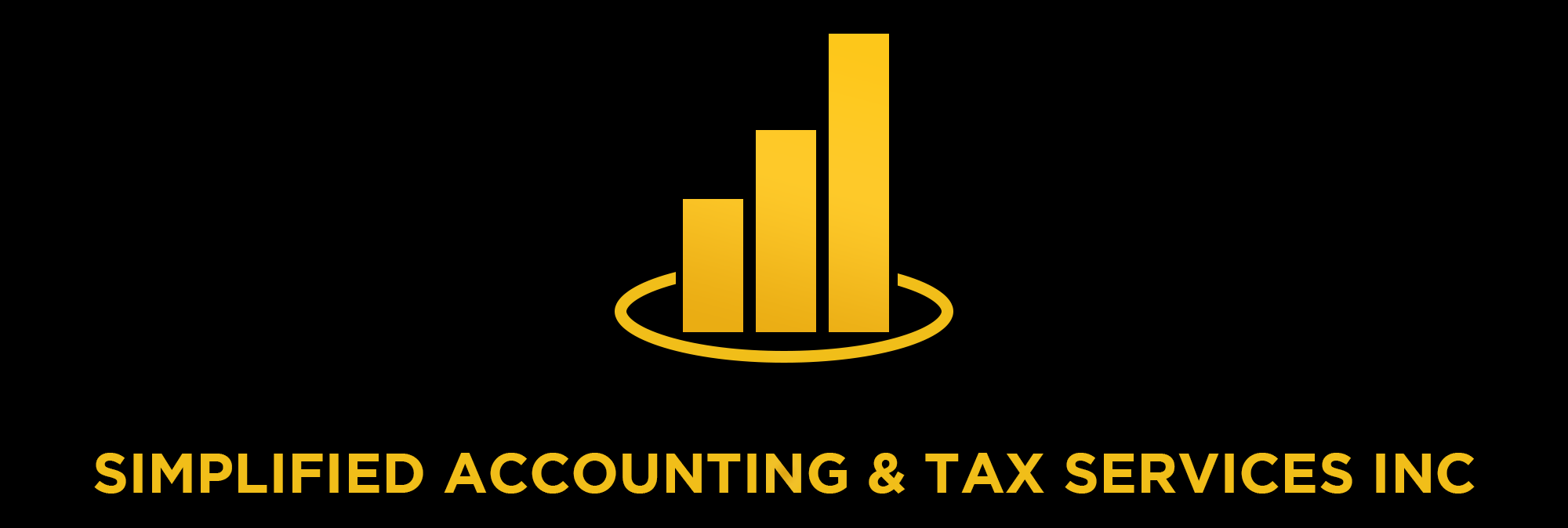Table of Contents
- Introduction to the Underused Housing Tax
- Understanding Ownership Categories Under UHT
- Filing Requirements for GTA Business Owners
- Properties Subject to UHT in the Greater Toronto Area
- Calculating the Underused Housing Tax
- Available Exemptions for GTA Property Owners
- Compliance Strategies for GTA Businesses
- FAQ Section
- Essential Compliance Steps for GTA Property Owners
Introduction to the Underused Housing Tax
The Underused Housing Tax (UHT) represents a significant shift in Canadian property taxation, implemented as an annual 1% federal tax on vacant or underused residential properties across Canada. This tax came into effect on January 1, 2022, as part of the federal government’s broader strategy to address foreign ownership and speculation in the Canadian housing market.
The UHT stands distinct from provincial and municipal vacancy taxes already in place in areas like Vancouver and Toronto. While these local measures target specific urban markets, the federal UHT applies nationwide, creating additional compliance requirements for property owners.
For business owners in Scarborough, Markham, Toronto, and Vaughan, understanding the UHT filing requirements has become particularly important. The Greater Toronto Area’s dynamic real estate market means many businesses with property holdings must determine if they’re affected by this tax and what their obligations entail.
“The Underused Housing Tax extends beyond foreign investors,” notes a tax specialist familiar with UHT legislation. “Many Canadian property owners are surprised to learn they may have filing obligations even if they ultimately don’t owe any tax.”
Key Takeaways:
- Who Must File: Canadian private corporations, partnerships, and trustees are generally considered “affected owners” with mandatory filing requirements, even when exempt from paying the tax.
- Filing Deadlines: Returns are typically due by April 30 following the calendar year, with significant penalties for non-compliance (minimum $5,000 for individuals, $10,000 for corporations per property).
- Property Definition: “Residential property” includes detached and semi-detached houses, rowhouses, condominiums, and certain vacant land zoned for residential development.
- Tax Calculation: 1% of the property’s taxable value (generally the greater of assessed value or most recent sale price) multiplied by ownership percentage and prorated for exempt days.
- Common Exemptions: Properties occupied by owners for 180+ days, rented to qualified tenants for 180+ days (with each tenancy at least 30 consecutive days), newly constructed properties, and properties under major renovation.
- Documentation: Comprehensive record-keeping is essential to support exemption claims, including lease agreements, occupancy records, building permits, and other relevant documentation.
- Multiple Tax Regimes: GTA property owners may face both federal UHT and municipal vacancy taxes (like Toronto’s Vacant Home Tax) with distinct rules and requirements.
Understanding Ownership Categories Under UHT

Excluded vs. Affected Owners
The UHT legislation creates two primary categories of owners: “excluded owners” and “affected owners.” This distinction is crucial as it determines filing requirements and potential tax liability.
Excluded owners typically include:
- Canadian citizens and permanent residents (who own property directly)
- Most publicly traded Canadian corporations
- Certain registered charities
- Cooperative housing corporations
- Municipalities and public institutions
Affected owners generally encompass:
- Foreign nationals
- Canadian private corporations
- Partners in partnerships that own residential property
- Trustees of properties
- Foreign corporations and entities
Many Canadian businesses are surprised to discover they have UHT filing obligations. A common misconception is that only foreign entities need to worry about this tax. However, Canadian private corporations, regardless of the citizenship of their shareholders, are considered “affected owners” and must file UHT returns for residential properties they own.
“Do I need to file Underused Housing Tax if I’m a Canadian citizen?” is a question frequently asked by business owners. While individual Canadian citizens who directly own property are excluded, the same person operating through a corporation typically becomes an affected owner with filing responsibilities.
Special Considerations for Business Entities
Canadian private corporations face particular challenges regarding UHT compliance. Even when wholly owned by Canadian citizens, these corporations must file UHT returns for each residential property they own.
For partnerships owning residential property, UHT filing obligations extend to each partner, adding complexity to compliance requirements. Similarly, trustees holding property in trust must navigate specific UHT rules that may create filing obligations regardless of the beneficiaries’ status.
The 2023 Fall Economic Statement proposed changes affecting the definition of “excluded owners,” potentially broadening exemptions for certain Canadian entities. These proposals aim to reduce administrative burden while maintaining the tax’s primary focus on underused properties held by foreign investors.
For businesses with real estate holdings in the Greater Toronto Area, determining UHT obligations has become an important consideration in property management and tax planning. With penalties for non-compliance potentially reaching thousands of dollars, even for nil returns, proper assessment of UHT filing requirements is essential.
If you’re unsure about your UHT obligations or need assistance with filing requirements, Simplified Accounting offers specialized services to help navigate this complex tax landscape, ensuring your business remains compliant while minimizing unnecessary tax exposure.
Filing Requirements for GTA Business Owners
UHT Return Filing Process
For business owners in the Greater Toronto Area, understanding the Underused Housing Tax filing requirements is essential for proper compliance. The UHT return (form UHT-2900) must be filed by all affected owners, even if they qualify for an exemption and owe no tax.
The filing process begins with determining whether you’re an affected owner under UHT legislation. Canadian private corporations, partnerships, and trustees that own residential property in Canada generally fall into this category and face mandatory filing obligations regardless of the property’s occupancy status.
“Many business owners ask, ‘Does my corporation need to file UHT even if we don’t owe any tax?'” explains a tax professional familiar with the legislation. “The answer is typically yes. Filing is required even when claiming an exemption.”
To complete the UHT-2900 form properly, you’ll need to provide:
- Details of the residential property
- Information about ownership structure
- The property’s taxable value
- Any applicable exemptions
- Calculation of tax payable (if not exempt)
Critical Deadlines and Extensions
The standard deadline for filing the Underused Housing Tax return is April 30 following the calendar year being reported. This means that for properties owned as of December 31, 2024, the UHT return deadline is April 30, 2025.
However, the government has provided extended deadlines for the initial implementation years:
- For the 2022 calendar year, returns were due by October 31, 2023
- For the 2023 calendar year, returns were due by April 30, 2024
Missing these Underused Housing Tax deadlines for Canadian property owners can result in significant penalties, starting at a minimum of $5,000 for individuals and $10,000 for corporations per property. Understanding “what happens if I miss the UHT filing deadline” is crucial for business owners, as late filings can quickly accumulate substantial financial penalties.
Registration and Record-Keeping Requirements
Before filing a UHT return, affected owners must register with the Canada Revenue Agency to obtain a UHT program account number. This registration process is separate from other tax accounts a business might have.
For GTA businesses with multiple properties, comprehensive record-keeping is essential. Documentation should include:
- Evidence supporting any claimed exemptions
- Records of property occupancy throughout the year
- Proof of rental agreements if claiming the tenant occupancy exemption
- Documentation of property value assessments
“What documentation do I need to support my UHT exemption claim?” is a common question among property owners. The specific records required depend on the exemption being claimed, but generally include evidence of qualifying use or occupancy.
Properties Subject to UHT in the Greater Toronto Area

Defining “Residential Property” Under UHT
The UHT legislation provides a specific definition of “residential property” that determines which properties are subject to the tax. Understanding this definition is crucial for GTA business owners to assess their UHT obligations.
Under the Underused Housing Tax, residential property includes:
- Detached houses and semi-detached houses
- Rowhouse units
- Residential condominium units
- Duplex and triplex units
- Land with a habitable building
- Certain vacant land zoned for residential development
The UHT taxable value determination for Canadian properties generally follows the greater of the property’s assessed value for property tax purposes and the most recent sale price. This valuation method can create situations where the UHT tax base differs significantly from current market values.
Property Types in the GTA Context
In the diverse real estate landscape of the Greater Toronto Area, various property types face different considerations under the UHT framework:
Residential Rental Properties: Properties rented to qualified tenants for at least 180 days of the calendar year may qualify for the tenant occupancy exemption. This addresses the question “Does renting my property for 180 days exempt me from UHT?” — while the exemption may apply, filing is still required.
Vacant Properties: Residential properties in Scarborough, Markham, Toronto, and Vaughan that remain unoccupied for significant portions of the year may be considered underused for UHT purposes, potentially triggering tax liability.
Investment Properties: Many GTA businesses hold residential properties as investments, making understanding UHT calculation methods crucial for financial planning.
Exemptions and Special Situations
Certain properties may be exempt from UHT consideration entirely, including:
- Properties unsuitable for year-round use (such as seasonal cottages)
- Properties uninhabitable for part of the year due to disasters or renovations
- Properties where the owner died during the calendar year
- Newly constructed properties meeting specific criteria
Mixed-use properties in the GTA present unique challenges under the UHT framework. Where a building contains both commercial and residential components, the residential portions may be subject to UHT while the commercial portions are not. This creates complexity for many Toronto-area businesses.
For commercial properties being converted to residential use, the timing of the conversion and occupancy can impact UHT obligations. These transitional situations require careful assessment to determine when UHT filing requirements apply.
If you’re struggling to determine whether your property is considered vacant under the Underused Housing Tax rules, Simplified Accounting can provide the expertise needed to navigate these complex determinations and ensure proper compliance with all UHT requirements.
Calculating the Underused Housing Tax

The 1% Tax Rate Formula
The Underused Housing Tax operates on a straightforward yet potentially substantial formula: a 1% annual tax applied to the taxable value of qualifying residential property. For GTA business owners, this seemingly small percentage can translate to significant amounts given the region’s high property values.
The basic UHT calculation method follows this formula:
Taxable Value × 1% × Ownership Percentage × (365 – Number of Exempt Days) ÷ 365 = UHT Payable
Understanding how to calculate the 1 percent Underused Housing Tax on property value is essential for affected owners. The tax applies proportionally to the period the property was owned during the calendar year and any days for which exemptions apply.
“The UHT calculation appears simple on the surface, but determining the correct taxable value and applicable exemption days requires careful consideration,” notes an expert in Canadian property taxation.
Determining Property’s “Specified Value”
The “specified value” of a property for UHT purposes is generally the greater of:
- The assessed value for property tax purposes (as determined by provincial assessment authorities)
- The most recent sale price of the property
This UHT property valuation approach can create situations where the taxable value differs substantially from current market value, particularly in the rapidly changing GTA real estate market.
For properties in Scarborough, Markham, Toronto, and Vaughan, where assessed values may lag behind market movements, understanding which value applies is crucial for accurate tax calculation. In some cases, professional appraisals may be necessary to establish appropriate valuations, particularly for properties with unique characteristics or recent improvements.
GTA-Specific Valuation Examples
Consider these examples that reflect typical property values in the Greater Toronto Area:
Example 1: Scarborough Residential Investment Property
- Assessed value: $950,000
- Recent purchase price (2021): $1,100,000
- UHT taxable value: $1,100,000
- Potential annual UHT (if fully taxable): $11,000
Example 2: Markham Condominium Unit
- Assessed value: $780,000
- Purchase price (2019): $650,000
- UHT taxable value: $780,000
- Potential annual UHT (if fully taxable): $7,800
Example 3: Toronto Mixed-Use Building
- Assessed value of residential portion: $1,400,000
- Purchase price of entire building (2020): $2,200,000
- Residential portion of purchase: $1,650,000
- UHT taxable value: $1,650,000
- Potential annual UHT (if fully taxable): $16,500
Multiple Ownership Calculations
For properties with multiple owners, the UHT calculation becomes more complex. Each owner’s liability is proportional to their ownership percentage:
- If four equal partners own a property valued at $2,000,000, each partner’s potential UHT liability (without exemptions) would be $5,000 ($2,000,000 × 1% × 25%)
- Each affected owner would need to file their own UHT return, even if other co-owners qualify as excluded owners
This aspect of the Underused Housing Tax requirements for partnership-owned property creates administrative complexity, as each partner must separately determine their filing obligations and potential tax liability.
Available Exemptions for GTA Property Owners
Exemptions Based on Owner Type
The UHT legislation provides various exemptions based on who owns the property. Understanding whether you qualify as an excluded owner is the first step in determining exemption eligibility.
Primary Excluded Owner Categories:
- Canadian citizens or permanent residents holding property directly (not through corporations)
- Publicly listed Canadian corporations
- Specified Canadian corporations meeting narrow ownership criteria
- Registered charities and non-profit organizations
- Cooperative housing corporations
- Indigenous governing bodies
Many GTA business owners ask, “Do I need to file Underused Housing Tax if I’m a Canadian citizen?” The answer depends on how you hold the property. Individual Canadian citizens owning property directly are excluded owners, but the same person owning through a corporation would typically be an affected owner with filing obligations.
Exemptions Based on Property Use
Even for affected owners, several exemptions may apply based on how the property is used throughout the year:
Qualifying Occupancy Exemption: Property occupied by the owner or their spouse for at least 180 days during the calendar year
Tenant Occupancy Exemption: Property rented to qualified tenants for at least 180 days during the year (with each tenancy being at least 30 consecutive days)
Year of Acquisition Exemption: Newly acquired properties in the same calendar year
New Construction Exemption: Recently constructed properties that become available for use during the calendar year
The UHT exemption for Canadian rental properties with tenant occupancy is particularly relevant for GTA investment property owners. Qualifying for this exemption requires proper documentation of rental agreements and occupancy periods.
Seasonal and Special Circumstance Exemptions
Additional exemptions address specific situations that can affect property availability:
Seasonal Property Exemption: Properties that are uninhabitable at least four consecutive months of the year due to location or seasonal factors
Renovation Exemption: Properties undergoing major renovations for at least 120 consecutive days, with proper permits
Disaster/Hazard Exemption: Properties uninhabitable due to disaster or hazard for at least 60 consecutive days
Deceased Owner Exemption: Properties where the owner died during the calendar year or the previous year
“Is my property considered vacant under the Underused Housing Tax rules?” is a question that must be evaluated against these specific exemption criteria. Even properties that appear occupied may not meet the technical requirements for exemption without proper documentation.
Documentation Requirements for Exemptions
To successfully claim an exemption, GTA property owners must maintain comprehensive documentation:
For Rental Exemptions:
- Lease agreements covering the required periods
- Proof of rent payments
- Tenant contact information
- Confirmation of tenant’s qualifications under UHT rules
For Renovation Exemptions:
- Building permits
- Contractor agreements
- Proof of work timeline
- Documentation showing property was uninhabitable
For Owner Occupancy Exemptions:
- Evidence of primary residence (utility bills, government correspondence)
- Travel records if away for extended periods
- Documentation of ordinary residency
“What documentation do I need to support my UHT exemption claim?” requires careful consideration of the specific exemption being claimed. Maintaining organized records throughout the year simplifies the exemption substantiation process.
For complex situations or multiple properties where determining exemption eligibility becomes challenging, Simplified Accounting offers expert guidance on Underused Housing Tax requirements and exemption documentation to ensure compliance while minimizing unnecessary tax liability.
Compliance Strategies for GTA Businesses

Risk Management Approach to UHT Compliance
Developing a comprehensive risk management strategy for Underused Housing Tax compliance is essential for GTA businesses with residential property holdings. This approach should identify potential exposure areas and implement processes to mitigate risks.
A robust UHT compliance framework includes:
- Regular assessment of all property holdings to identify those subject to UHT
- Systematic tracking of property occupancy throughout the calendar year
- Proactive identification of available exemptions
- Clear responsibility assignment for UHT compliance within the organization
“What’s the difference between UHT and provincial vacancy taxes?” is a question that highlights the need for coordinated compliance efforts. GTA property owners may face multiple vacancy tax regimes simultaneously, including Toronto’s Vacant Home Tax, which operates independently from the federal UHT.
Integration with Overall Tax Planning
For business owners in Scarborough, Markham, Toronto, and Vaughan, UHT considerations should be integrated into broader tax and property management strategies. This holistic approach helps minimize tax exposure while maintaining compliance.
Key integration points include:
- Evaluating property holding structures to optimize UHT filing requirements
- Considering UHT implications before property acquisitions or corporate restructuring
- Aligning property use patterns with qualification criteria for exemptions
- Incorporating UHT costs into cash flow projections and financial planning
“Understanding UHT requirements for Canadian private corporations has become essential for business tax planning,” notes a corporate tax specialist. “The compliance burden extends beyond simply paying the tax to include mandatory filing requirements regardless of exemption status.”
Recommended Recordkeeping Practices
Maintaining comprehensive records is fundamental to successful UHT compliance, particularly for GTA businesses with multiple properties. Effective recordkeeping practices include:
- Centralized documentation system for all residential properties
- Chronological tracking of property occupancy throughout the year
- Systematic collection of evidence supporting claimed exemptions
- Regular reconciliation of property records with tax filing requirements
For properties claimed under the rental exemption, detailed records of tenant occupancy are crucial. Similarly, for properties undergoing renovation, maintaining documentation of the work timeline and building permits helps substantiate exemption claims if questioned by tax authorities.
Coordination with Municipal Vacancy Taxes
GTA property owners face a layered vacant property tax landscape, with the federal UHT operating alongside municipal measures such as Toronto’s Vacant Home Tax. While these programs share similar goals, they have distinct rules, definitions, and filing requirements.
Effective coordination between these regimes includes:
- Understanding the different definitions of “vacancy” under each program
- Recognizing that exemption from one tax doesn’t automatically grant exemption from others
- Maintaining separate compliance processes for each tax regime
- Leveraging documentation that may satisfy requirements for multiple programs
The Underused Housing Tax for properties in the Greater Toronto Area must be considered within this broader context of vacancy taxation, with particular attention to the specific requirements of each jurisdiction.
Working with Tax Professionals
Given the complexity of UHT legislation and its significant potential financial impact, working with tax professionals familiar with GTA market conditions is advisable for most business owners. These specialists can provide:
- Expertise in identifying applicable exemptions
- Guidance on UHT form UHT-2900 completion
- Support with registration requirements and filing processes
- Representation in case of CRA inquiries or audits
Simplified Accounting works with numerous GTA businesses to navigate UHT requirements, offering specialized services for property owners in Scarborough, Markham, Toronto, and Vaughan facing these new compliance challenges.
FAQ Section
Who is exempt from Underused Housing Tax in Canada?
The UHT legislation recognizes two main categories of exempt parties:
Excluded Owners who are not required to pay the tax but may still have filing obligations include:
- Canadian citizens and permanent residents (holding property directly)
- Specified Canadian corporations meeting strict ownership criteria
- Listed corporations (publicly traded Canadian corporations)
- Registered charities and qualifying non-profits
- Cooperative housing corporations
- Certain public institutions and Indigenous governing bodies
Affected Owners who may qualify for exemptions based on property use include those whose properties are:
- Occupied by the owner or related individuals for minimum periods
- Rented to qualified tenants for at least 180 days
- Newly constructed or acquired during the calendar year
- Undergoing significant renovations or repairs
- Uninhabitable due to disasters or seasonal factors
- Subject to specific ownership changes such as death of the owner
Understanding “how to determine if you’re an affected owner under UHT legislation” is crucial, as even exempt properties often require filing a UHT return to claim the exemption.
What is the definition of residential property under UHT?
The UHT legislation defines “residential property” as:
- Detached houses with three or fewer dwelling units
- Semi-detached houses, rowhouse units, or similar premises
- Residential condominium units
- Any other similar premises intended for residential or mixed use
- Land that has been zoned for residential use on which a residential unit could be legally constructed
This residential property UHT definition captures a wide range of properties commonly held by GTA businesses and individuals for investment, development, or personal use.
Commercial properties are generally excluded unless they contain residential components, in which case the residential portions may be subject to UHT filing requirements.
Does UHT apply to rental property?
Rental properties may be exempt from UHT if they meet specific criteria:
- The property must be rented to qualified tenants for at least 180 days during the calendar year
- Each rental period must be at least 30 consecutive days
- The tenant cannot be related to the owner or a specified shareholder of the corporate owner
- Proper documentation of the rental arrangement must be maintained
Even with this exemption, affected owners must still file a UHT return to claim the exemption and avoid penalties.
Short-term rental properties (such as those rented through platforms like Airbnb) typically do not qualify for the rental exemption unless each rental period meets the 30-consecutive-day minimum requirement.
Underused Housing Tax: Essential Compliance Steps for GTA Property Owners
Summary of Key Points for GTA Business Owners
The Underused Housing Tax presents significant compliance challenges for business owners in the Greater Toronto Area who hold residential property. Key considerations include:
- Understanding your status as either an excluded or affected owner
- Recognizing mandatory filing requirements even when exempt from the tax
- Meeting critical deadlines to avoid substantial penalties
- Maintaining comprehensive documentation to support exemption claims
- Calculating potential tax liability accurately based on property values and ownership structures
For many GTA businesses, particularly private corporations, partnerships, and trusts, UHT filing obligations exist regardless of the property’s occupancy status or potential exemptions.
Action Items and Next Steps
Business owners in Scarborough, Markham, Toronto, and Vaughan should take these proactive steps:
- Inventory all residential property holdings to identify those potentially subject to UHT
- Determine ownership status (excluded vs. affected) for each property
- Register for a UHT program account with the CRA if required
- Implement systems to track property occupancy and document exemption qualifications
- Calendar UHT filing deadlines and build in adequate preparation time
- Consider professional guidance for complex situations or multiple properties
Taking action now can prevent costly penalties and ensure compliance with this relatively new tax regime.
Final Thoughts on Compliance Importance
The Underused Housing Tax represents a significant shift in Canadian property taxation with particular impact on business owners in the Greater Toronto Area. Beyond the potential 1% tax, the administrative requirements and substantial penalties for non-compliance make understanding and addressing UHT obligations critical.
“Why do Canadian private corporations have to file UHT returns?” reflects a common frustration among business owners. While the tax primarily targets foreign ownership of underused housing, the broad filing requirements affect many Canadian businesses, even those fully exempt from the tax itself.
With minimum penalties of $5,000 for individuals and $10,000 for corporations per property for non-compliance, the stakes are high for GTA property owners. Proper planning, documentation, and timely filing are essential to navigate this complex tax landscape successfully.
For comprehensive guidance on UHT compliance tailored to your specific property holdings, Simplified Accounting offers expert services to GTA business owners, ensuring you meet all requirements while minimizing unnecessary tax exposure.

